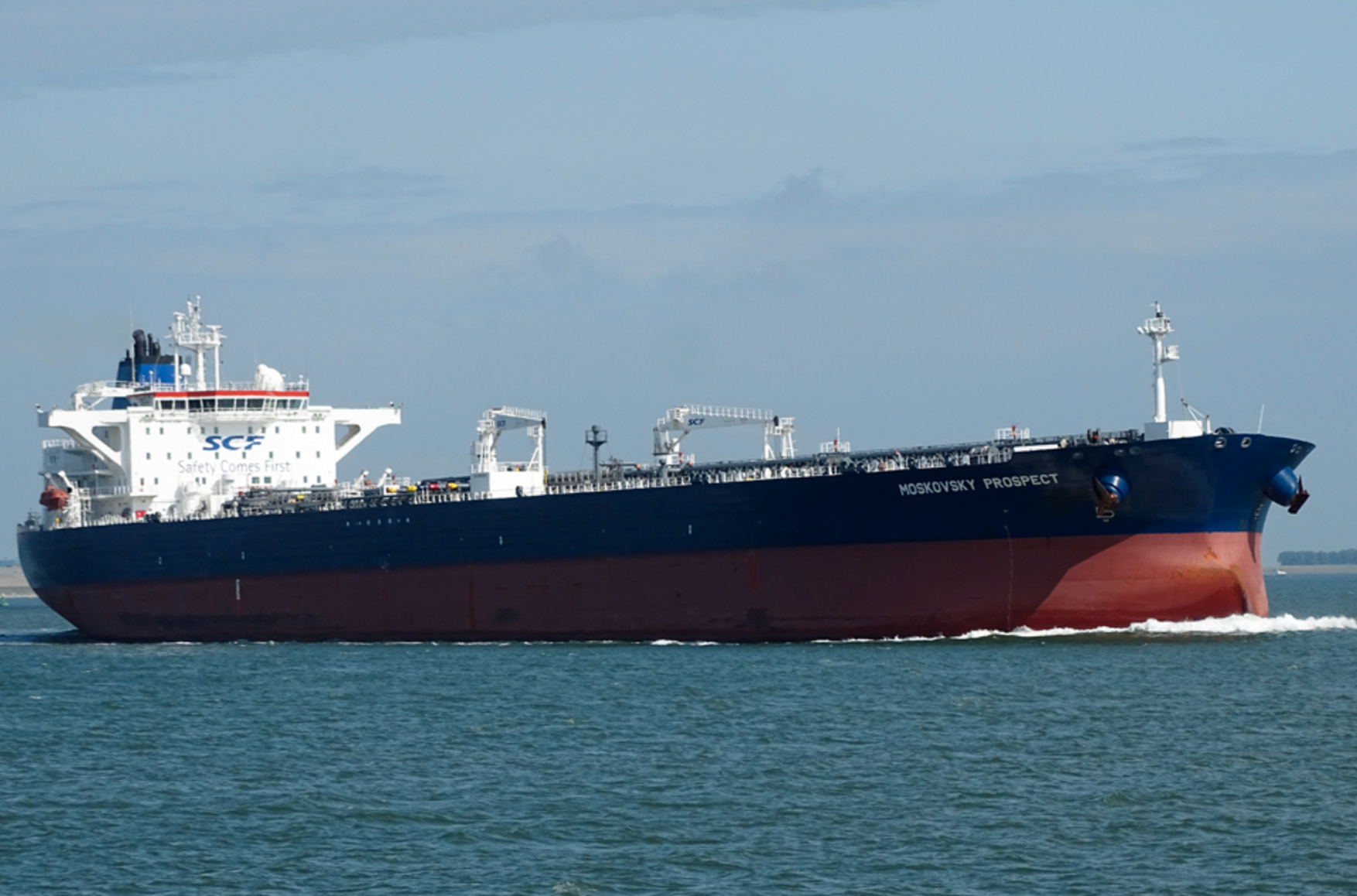
Cover photo: The Moskovsky Prospect oil tanker photographed in the Western Scheldt in the Netherlands in 2019. Source: scheepvaartwest.be
The UK government has imposed sanctions on 18 Russian oil tankers and four liquefied natural gas (LNG) carriers, according to an announcement made by the country’s Foreign, Commonwealth & Development Office (FCDO) earlier today.
The action amounts to “the largest package of sanctions to date against Putin’s shadow fleet,” as per the FCDO’s press release.
The “shadow fleet” refers to vessels that circumvent sanctions imposed on Russian oil and petroleum products. “18 more shadow fleet ships will be barred from UK ports and unable to access world-leading British maritime services, bringing the total number of oil tankers sanctioned to 43,” the FCDO said.
The measures have added to the mounting regulatory restrictions on vessels transporting Russian oil sold above a price cap of $60 a barrel. In late 2022, an international coalition made up of the G7 countries, the European Union, and Australia imposed the cap in an effort to limit Moscow’s hydrocarbons income amid its ongoing invasion of Ukraine.
According to an Oct. 10 Bloomberg article, however, almost a third of the tankers sanctioned by the U.S., UK, or EU last year for delivering Russian oil sold at prices above the cap appear to have gone back to work. At least 21 out of 72 blacklisted tankers have collectively loaded Russian oil cargoes 24 times since they were named as having violated the regulation.
The publication noted that the measures imposed by the UK seem to be the least effective:
“A combination of increased confidence from buyers and — in particular — a lack of concern about measures imposed by London have likely helped Moscow and its customers to find workarounds. [...] Almost two-thirds of the total cargoes loaded so far have been carried by vessels sanctioned by London. All of the tankers put to work in September and October have been sanctioned by Britain.”
The rate at which the tankers are being brought back into operation also appears to be increasing, Bloomberg wrote. As the “shadow fleet” continues to help Vladimir Putin fund his assault on Ukraine, the aging vessels also pose significant environmental risks to third countries located along their shipping routes.
A recent study from the environmental NGO Greenpeace warned that the “shadow fleet” carrying Russian crude oil substantially raises the risk of a major spill in the Baltic Sea, with the northern German cities of Rostock, Lübeck, and Kiel particularly vulnerable.
“The shadow fleet seeks to undermine sanctions and poses a clear and present danger. Environmental risks, such as oil spills, on our coastlines as a result of its flagrant violation of basic safety standards, but also risks to the security of global trade,” the FCDO’s statement continued.
According to the FCDO, the sanctioned oil tankers generated approximately $4.9 billion for Russia in the past year alone.
Aside from today’s actions against more “shadow fleet” vessels, the UK also sanctioned four more LNG carriers, along with the Russian gas company Rusgazdobycha.
An investigation by The Insider released on Sept. 24 identified one of the key players enabling the operation of Russia’s “shadow fleet”: Latvian citizen Aleksejs Haļavins. Two entities affiliated with the businessman are known to have purchased oil from Russian company Surgutneftegaz at a price above the cap, bringing the Russian corporation an additional $1.4 billion in revenue. Other companies linked with Haļavins operated tankers carrying oil from Russia to India and China.
Moscow’s “shadow fleet” — coupled with high oil prices driven by OPEC+ production cuts — have so far enabled the Kremlin to sustain its war efforts. Experts interviewed by The Insider, however, noted that curbing Moscow’s excess profits is still possible, but doing so would require not only stricter enforcement of the oil price cap, but a lowering of the cap itself.